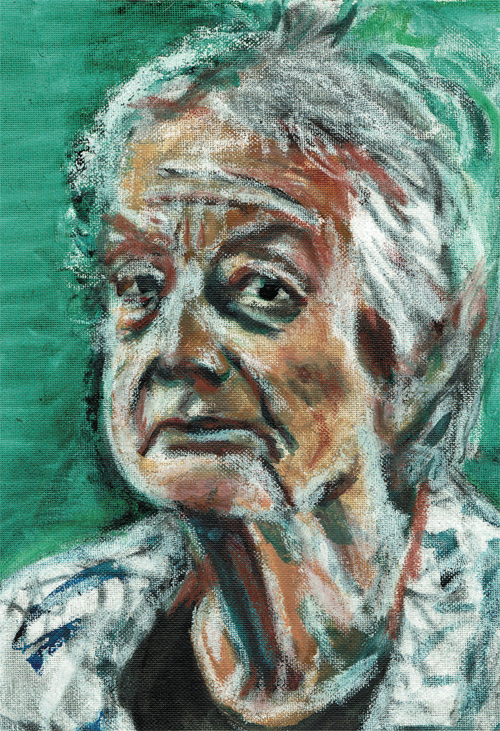
Your complimentary articles
You’ve read one of your four complimentary articles for this month.
You can read four articles free per month. To have complete access to the thousands of philosophy articles on this site, please
Obituary
Mary Warnock (April 14, 1924 - March 20, 2019)
by Tim B-Gray
Baroness Mary Warnock passed away on 20 March 2019, aged 94.
Her philosophical career began in 1949. After teaching at a girls school in Dorset (her military assignment during WW2), she completed her studies and became a fellow at St Hughes College, Oxford. Warnock’s research interests were broad. In the 1960s, she wrote several books on existentialism and Sartre. The following decades saw her publish works on the philosophy of mind and education, before she focused in on the medical ethics for which she is most well known. Warnock was married to fellow Oxford philosopher Geoffrey Warnock and kept sharp company with the likes of Isaiah Berlin and Peter Strawson.

Mary Warnock © Gail Campbell 2019
Warnock was an influential philosopher in the public sphere. Her theoretical and practical work in education led to her appointment as chair of a 1974 government inquiry into special education in the United Kingdom. Warnock’s report recommended that children with special educational needs should be included in the mainstream schooling system and that attention be given to each child’s unique needs. Whilst the philosopher’s ideas were put into law, she became deeply concerned about the way they were implemented. In a 2010 article for The Telegraph, she suggested that radical change was needed because too many children with special educational needs were being failed.
Warnock would be less frustrated by the success of her 1984 report on Human Fertilisation and Embryology. By balancing the realities of medical progress, the hopes of potential parents, and the moral status of human embryos, Warnock’s report achieved the rare feat of widespread – though certainly not universal – ethical agreement. It led to the regulation of medical procedures and research involving embryos. A key requirement is that all embryos used in such practices must be less than 14 days old, for that is when the nervous system becomes visible.
Turning her attention to the opposite end of human life, Warnock argued that the law should not prohibit all assisted dying. A 2006 interview on the matter with Philosophy Now’s Rick Lewis reveals Warnock’s nuanced approach to ethical issues. Motivated by a desire to both further the ‘common good’ and help individuals dealing with specific problems, Warnock was not a philosopher prone to categorical, sweeping statements. Instead, she took care to combine open-ended philosophical theory with an understanding of the practical complexities of contemporary moral dilemmas.









